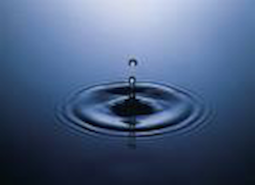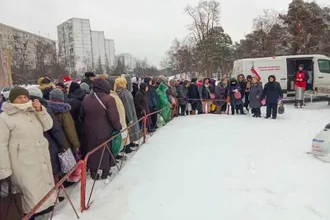Human rights to water

"Water is not for possession. It is a basic human right...where there is water, there is life." (Pope Francis).
The official advice to all citizens in countries affected by COVID-19 includes a statement that people should protect themselves by frequently washing their hands to eliminate viruses that may be on their hands and avoid infection that could occur when touching their eyes, mouth, and nose. Does every household in Trinidad and Tobago (TT) have access to clean water to be able to protect themselves from COVID-19?
Sunday 22 March, is World Water Day. The UN recognises access to water and sanitation as human rights, "reflecting the fundamental nature of these basics in every person's life...Lack of access to safe, sufficient and affordable water, sanitation and hygiene facilities has a devastating effect on the health, dignity and prosperity of billions of people, and has significant consequences for the realisation of other human rights. People are rights-holders and States are duty-bearers of providing water and sanitation services...duty-bearers must guarantee the rights to water and sanitation equally and without discrimination" (UN).
In June 2019 UNICEF and the World Health Organisation published the results of The Joint Monitoring Programme report, Progress on drinking water, sanitation and hygiene: 2000-2017: Special focus on inequalities. The report found that, while significant progress has been made toward achieving universal access to basic water, sanitation and hygiene, there are huge gaps in the quality of services provided...Global inequalities in access to water, sanitation and hygiene also revealed that more than half of the world does not have access to safe sanitation services." Kelly Ann Naylor, UNICEF said: "Mere access is not enough. If the water isn't clean, isn't safe to drink or is far away, and if toilet access is unsafe or limited, then we're not delivering for the world's children." Each day, nearly 1,000 children die due to preventable water and sanitation-related diarrheal diseases (UN).
TT has a long way to go to achieve Sustainable Development Goal 6 - access to clean water and sanitation for all. Shaliza Hassanali reports in her Guardian article 11 May 2019 on Public Utilities Minister Robert Le Hunte's update on some of the challenges TT faces. He said that 26 per cent of the population gets a 24/7 water supply; the rest receives water on a weekly schedule. But there are many communities still without a regular water supply.
He informed that it will cost the cash-strapped Water and Sewerage Authority (WASA) $12.7 billion "to fix some of the major issues affecting its water supply and distribution." WASA receives an annual subvention of $1.8 billion while its expenditure is $2.5 billion. He said WASA has been faced with "a tsunami of issues, ranging from lack of water storage, unavailability of funds, management problems, ageing infrastructure, outstanding arrears, debts and the inability to channel water to high demand areas." WASA will need: TT$10 billion to replace 7,200 kilometres of ageing pipelines; TT$1.2 billion to install water meters at homes, businesses and in industrial areas; TT$1 billion to fix interconnectivity issues; TT$500 million to improve its water storage capacity. TT$630 million in arrears are owed to WASA and 150 leaks are reported daily. WASA is drilling water wells across T&T to ramp up water production. He pleaded with the public to conserve water and identify leaks.
In his encyclical, Laudato Si, Pope Francis states: "Even as the quality of available water is constantly diminishing, in some places there is a growing tendency, despite its scarcity, to privatise this resource, turning it into a commodity subject to the laws of the market. Yet access to safe drinkable water is a basic and universal human right, since it is essential to human survival and, as such, is a condition for the exercise of other human rights. Our world has a grave social debt towards the poor who lack access to drinking water, because they are denied the right to a life consistent with their inalienable dignity. This debt can be paid partly by an increase in funding to provide clean water and sanitary services among the poor. But water continues to be wasted, not only in the developed world but also in developing countries which possess it in abundance. This shows that the problem of water is partly an educational and cultural issue, since there is little awareness of the seriousness of such behaviour within a context of great inequality (30)."
Let us conserve water for the common good.
Leela Ramdeen is Chair of the Catholic Commission for Social Justice in the Archdiocese of Port of Spain, Trinidad and Tobago and Director of CREDI


















